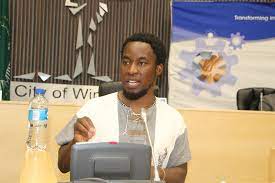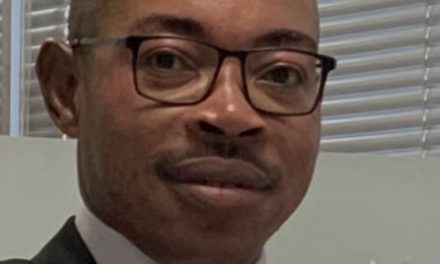
Windhoek at 365 Days – Adiós residentes

By Dr Job Amupanda.
Although local authority councillors are elected for a five-year term, Mayors are elected for one year. Next month, the City of Windhoek will elect a new Mayor, Deputy Mayor and Management Committee members.
In this connection, I reflect on our time in office drinking from the wisdom cup of the great Chines philosopher, Confucius who submitted that “by three methods we may learn wisdom: First, by reflection, which is noblest, Second, by imitation, which is easiest, and third by experience, which is the bitterest.” Indeed, as author Yvonne Woon posits in her 2010 novel ‘Dead Beautiful’, “sometimes, you have to look back in order to understand the things that lie ahead.”
Moral and Formidable Leadership
The Namibian constitution, in Article 102, established local governments with an executive and administration that is subject only to the constitution and the relevant laws. Despite this genesis, local authorities struggled to operate independently. Instead, they were seen as extensions of the central government as zones of patronage and bastions where stooges of central politicians are deployed to carry out corrupt and/or unlawful political directives. Resultantly, local authorities failed to operate outside the grand narrative and posture of the hegemonic centre on account that over the past 30 years, an absolute majority of local authorities were under the control of SWAPO the ruling party.
The 2020 elections changed this balance of power. With SWAPO having lost control of major municipalities, coalitions and/or voting arrangements were birthed. In Windhoek, AR, IPC, NUDO and PDM formed a Coalition called the Progressive Forces. We worked to give the City identity and operate outside the patronage network administered by the hegemonic centre. Windhoek leadership is now widely acknowledged by all and dominate mainstream public discourse. Society is aware that Windhoek issues are not discussed and concluded at ministerial offices. Compared to National Assembly sessions, Windhoek Council meetings have more viewers. Windhoek is now taken seriously.
Financial prudence and sustainability
We found perplexing finances. On the one hand are assets worth N$20 billion and liabilities calculated at N$3 billion on the other. Concurrently, contained in about N$5 billion budget is a more than N$400 million deficit. Weak financial management allowed residents to owe the City more than N$900 million.
We tasked our finance team to clean up the books and put up systems. We are chasing the City’s first unqualified audit within the next four years. Earlier this year, we cut off the services of several government ministries and agencies that enjoyed the past non-payment culture. They speedily moved to pay what they owed to the City. Resultantly, we used the payment to settle the historical debt we owed to NamPower and NamWater. A lot still needs to be done but the foundation is set.
Economic growth and developmental
With our economy is shambles, sloganeering national leadership uninspiring, it became clear that economic recovery in Windhoek cannot be left to posturing national politicians. We redirected the City to assume a developmental interventionist character. Given that Windhoek contributes more than 30% to the country’s GDP, we introduced and approved the Windhoek Economic Recovery Initiative (WERI), an initiative granting entrepreneurs an opportunity to submit proposals contributing to employment creation and economic growth. These proposals are being adjudicated and the successful bidder will be announced soon.
Land and housing interventionist character
We have adopted initiatives to solve Windhoek land and housing challenges. We have passed the Affordable Housing Policy to guide our intervention in the low-income segments of our residents. The approved land pre-allocation intervention will allow for land allocation to be done faster, soon after the completion of the layout.
Residents will know the locations of their future homes. We approved one waiting list of all those who have applied for land in Windhoek. This list will also soon be available on the City’s website for transparency. We now have a city-owned company, Nova Actus Holding (Pty) Ltd, to be involved in building homes and servicing of land amongst others. Council has approved the construction of a relocation centre in Otjomuise. This centre will also be used for emergencies resulting from disasters. These noble interventions will however remain meaningless if not executed speedily for residents to see results. Indeed, a lot still needs to be done.
Public life and social harmony
Windhoek cannot continue being absent in the social life of its residents as has been the case over the past years. On a close inspection, the small town of Oranjemund may have more well-kept public open spaces and recreational areas than Windhoek. In their numbers, Windhoek youth have now turned to shebeens and alcohol for recreation. To reverse this trend, we have created a dedicated budget vote for the development of public open spaces. Over the coming years, residents will see how the public open spaces will increase, for our children and youth, because of this intervention.
We have started assisting and coordinating with several arts institutions and partners in Windhoek to support the arts in the City. We are now busy with the development of the Public Art policy which will further guide the City’s actions. The City’s bulldozers and graders are busy levelling and preparing football and netball fields for our children in several informal settlements. We have to intervene in these social spaces.
Future targeted initiatives
By 2041 Windhoek’s population will increase from an estimated less than 400 000 to 800 000. We have started preparing for 2041. We have started preparations for the Windhoek Education Fund to provide for future education opportunities for our youth. We advertised a tender for the building of the 25 MW solar plant in Windhoek. Beyond the green city and reducing the NamPower dependency, we are primarily planning for energy needs for the future 800 000 Windhoek inhabitants. We are almost done with the City’s Spatial Development Framework to guide spatial development over the next 20 years. Future students will be able to cycle to and from their Windhoek campuses.
Friends of Windhoek and international relations
We have mobilized our internal and external friends to support our development efforts. The European Union and the City of Bremen assisted us in securing the N$ 30 million for our waste management programs. With our Spanish friends, we will soon launch a football school program administered by Real Madrid FC. Our fruitful engagements with our international friends will soon bear similar fruits. Inside Namibia, we are consolidating the unity of the local authority family. Windhoek stands ready to assist other local authorities towards a formidable developmental Namibian local authority.
Unfinished business
We are yet to finalise the recruitment of the City’s CEO. It would seem that the old factional City wine managed to permeate through us or some amongst us. Preference and kinship, and not the rule of law, seems to be at play. One only hopes that we aren’t headed for back-and-forth years. We were unable to recover and rescue the Association of Local Authorities of Namibia. We were also unable to develop the City’s internal research capacity. City Police problems remain. Sam Nujoma Stadium and football challenges persist.
Adiós residents
We have raised the standards and Windhoek is now taken seriously. We have established a good foundation for further work. The path will be smooth. It has been a tough year that left me fatigued, often gasping for air as everyone sought to get my attention. We tried our best given the circumstances. Salutation to the young men women of the Red Star, the Progressive Forces, fellow Councilor, City employees and stakeholders. As our Spanish friends would say, adiós residents.










































